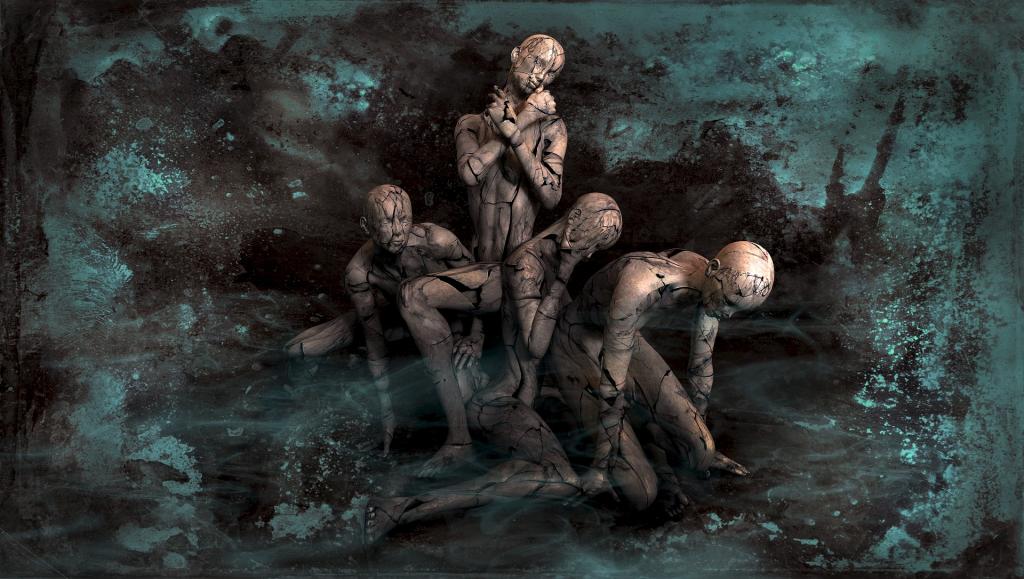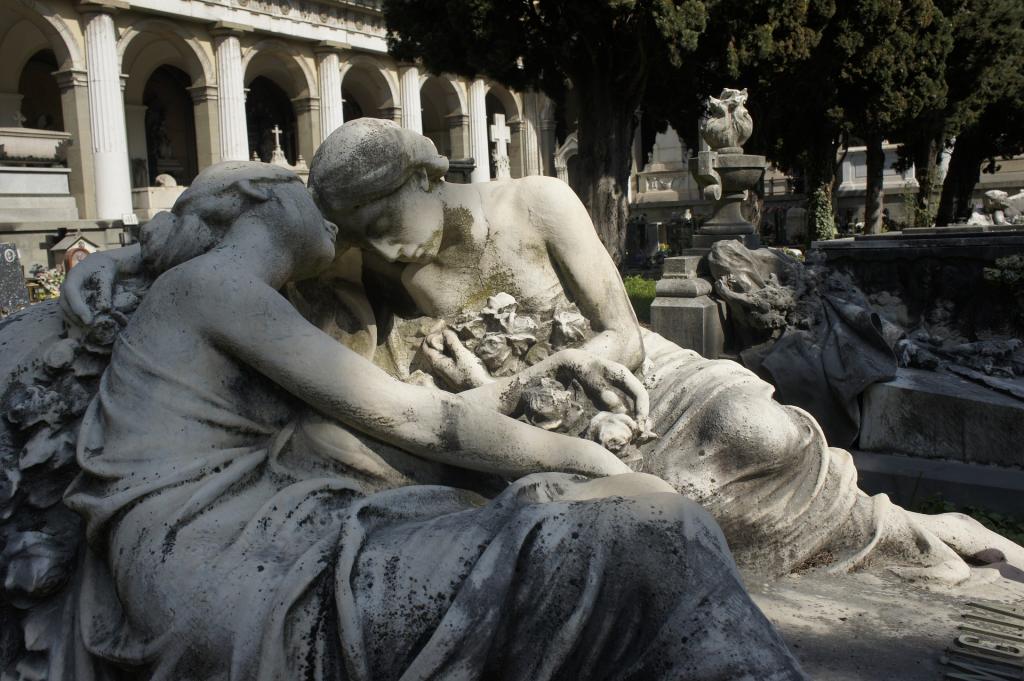
One of the most common (and frankly most offensive) responses that Christians give to atheists who have lost their faith is the smug rejoinder “You never really had faith in the first place.”
Against this charge, defenses from experience are rendered void. If you say “I prayed every day, I read the Bible, I attended church every Sunday, I obeyed the commandments and submitted to the authority of church leadership” then you are told that you did not have faith, but merely “religion.”
If you say “I experienced God in my heart and perceived God’s working in my life. I sensed the presence of God and felt that God was transforming me from within into a new Creation,” then you are told that you did not have faith, but merely feelings.
If you say “I studied theology and apologetics. I knew the arguments for the existence of God upside down and inside out and I presented them to others with great conviction. I knew the teachings of the Scriptures and the history of the church and I was completely convinced that God exists and that Jesus rose from the dead,” then the response is that you didn’t have faith, only an idea of God.
If you say “I was absolutely convinced of the truths of the Gospel. I invited the Holy Spirit into my heart. I opened myself to Grace. I sought God in prayer and waited on Him to reveal Himself to me. I placed my trust in him. I hoped in the resurrection. I believed with all my heart and all my mind and all my strength,” then you are told that you were never truly open, that you held back, that you never really believed.
You Never Had Faith, But Somehow You Still Know
Ironically, this insistence that the apostate never had faith in the first place is routinely accompanied by the accusation that the unbeliever secretly knows that God exists and is deliberately rejecting Him. After all, in order to condemn someone for disbelief it is necessary to posit that they are guilty of disbelief. Since God is presumed to hold people responsible for apostasy, it follows that the apostate must be culpably in error.
If it were true, as I claim, that I honestly attempted to believe in God and ultimately found that the evidence did not stack up, then my error could hardly be damnable. An error made as a result of ignorance is only culpable if the ignorance itself is culpable. A person who has tried to believe, who has studied and prayed and looked for the truth of Christ without finding it can hardly be blamed for having tried their best and failed.
Now, I readily acknowledge that there are reasonable forms of Christianity which acknowledge that the atheist might very well be excused by the heavenly court. The atheist might be among those who say “Lord, when did we see you hungry and feed you, or thirsty and give you something to drink? When did we see you a stranger and invite you in, or needing clothes and clothe you? When did we see you sick or in prison and go to visit you?” (Matt. 25:37-39) God, according to this narrative, is more concerned with a person’s disposition towards others, especially towards the weak, the marginalized and the impoverished, than about their ostensible faith.
People who subscribe to this kind of faith, however, are never the ones who feel themselves qualified to sit in judgement over those who have lost their faith.
No True Christian `
As I mentioned, it is impossible, on the basis of experience, to prove that one’s former faith was indeed faith. If it had been real faith (presumably like the faith of your interlocutor) you could never have lost it. Therefore, since you have lost it, it was not real. Nor is it possible, on the basis of experience, to prove that you really do not know that God is real, because if you were deluding yourself you would have also to delude yourself about the fact that you are deluding yourself.
In both cases, an appeal to the merely subjective cannot assail the certainty of the accusing Christian that they (the Christian) knows the heart of the atheist better than the atheist knows it themself. The moment that someone assumes authority to speak for you, over you, against you, they have reduced you from a person to an object. You can no longer speak for yourself because you are no longer understood as a subject capable of an interior truth. You are instead an object with features and characteristics which are scrutable only from the external, objective perspective of the person who is judging you.
What is required, then, is an objective, logical demonstration that the Christian’s claim is self-refuting nonsense. Fortunately, our good friend Jean-Paul Sartre, provides us with exactly this.
“To Believe is Not-To-Believe”
Sartre really likes these paradoxical little aphorisms. But what does he mean?
First, that the word believe has two senses which are, superficially, the opposite of one another but which are actually intrinsically linked. The first is the sense in which I might say “I believe in God” the second is the sense in which I might say “I don’t know if it’s going to rain this afternoon, but I believe it will.” The first signals certainty, the second implies doubt.
Sartre’s argument is that these two forms of belief actually serve to reveal the structure of belief. To believe (as in faith) is to admit that one only believes, that one does not know, and that therefore the belief is uncertain.
We’ll walk through that a little slower, in relation to religious faith specifically.
The statements that I opened this essay with (that the apostate never really believed and that the apostate knows that God exists) both operate by treating faith as if it were knowledge. Knowledge is understood as fixed, clear and objective. So if I know that the cat appears to me to be sleeping on the bed, there is nothing I can do to not-know this. I can’t choose to believe or disbelieve, I simply know.
You, on the other hand, have no idea whether I am seeing a cat sleeping on the end of the bed. I might be lying. For all you know, I don’t even have a cat. Most likely you believe me, because why would I be lying about this? But you don’t know. By saying “I believe you” you admit that it is possible to not believe me, that you choose to take my word for it but you are not sure. If you were sure, you would say “Yes, I know.” There would be no question of belief.
A God Beyond Belief
If God exists, and if at some point in the past I knew he existed, then I would not be able to not-know. Barring brain damage or dementia, it is improbable in the extreme that I would have forgotten such an important truth. It’s on the level of forgetting where I live, or that I have children.
If faith is certain knowledge of God existing, then it makes sense to say that the atheist must never have had faith. They may have had piety, spiritual feelings, theological speculations or delusions, but the fact that they were able to doubt means that when it comes down to it they didn’t know that Jesus died for their sins.
Here’s where it gets tricky, though. If faith is knowledge, then there is no merit in it. For example, I know that pi is derived by dividing the circumference of any circle by its diameter. Knowing this does not make me morally superior to someone who doesn’t know it. If I go and Google “how can I make my bread softer” I may acquire knowledge of bread-making, and may become a better bread-maker, but I will not thereby become a better human being.
In order for God to be able to make moral judgements about people on the basis of their faith, faith cannot simply be knowledge. Otherwise the judgements would be fundamentally arbitrary: those who happened to read the right book, happened not to read the wrong blog post, happened to have been taught Christianity from birth, happened not to have been born in North America circa 500 AD, happened to have a mind that easily absorbs religious teaching, and happen not to have a temperament that asks too many questions, are at a soteriological advantage.
Moreover, since it is God who directs the whole show, if faith is reduced to knowledge, then ultimately it is God who decides who to save by putting them in the right environment, with the right sort of neurology and the right influences. Free will no longer enters into the equation. Instead, God simply decides to save some people by giving them knowledge of himself, and chooses to condemn other people by not giving them knowledge of himself. Such a God loves only those he has chosen, and he gives us no choice about whether we will believe in him or not.
The Existential Question
Most Christians, however, do believe that God gives us free will and that we are judged based on whether we freely choose to accept or reject the revelation that God has provided. Since we cannot choose to know what we do not know, nor to not know what we know, faith cannot be knowledge. It has to be belief, and as such, it has to allow the possibility of doubt.
This means that every time the question “is there really a God” arises, the Christian has to make a choice. This choice has two components. The first is to decide whether to pose the question to yourself in good faith, or whether to assert your belief as a certainty without consciously acknowledging the dimension of doubt. The Christian can simply choose not to actually engage with the question as a question, to pretend that it is settled and that she has no choice but to go on believing.
This, of course, involves choosing in bad faith, but through that act of bad faith it becomes possible to avoid having to contend with the possibility of unbelief. It is also (because this is how bad faith works) possible to pretend that you aren’t making a choice at all. You can simply ignore the fact that it is possible to consider the question seriously, and thus can insulate yourself from the possibility of doubt
Let’s suppose, though, that you’ve decided that you are not willing to be dishonest with yourself: that if you are going to have faith, you are going to own it as a genuine choice in favour of God. In this case, you are confronted with the fact that belief necessitates the possibility of unbelief — that once having decided to believe, you must renew and reaffirm this belief each time that is called into question.
Which means that the choice you make today can never be a fixed choice for the rest of your life. There is no guarantee that the person you become in a year, or five years, or twenty-five years, is going to make the same choice. No matter how genuine your faith is today, some change, some new evidence or experience, could prompt you to choose differently tomorrow.
This is, of course, why St. Paul talks about working out salvation in fear and trembling — or, if you like, in anxiety and anguish. To be free, and to acknowledge your freedom, is to accept that you are capable of changing your mind, your heart, your life. Which means a loss of faith is always possible.
Of course, if a loss of faith is always possible then it must be admitted that those of us who claim to have had faith, who tell you that our belief was once as sincere and deep as yours is now, might not be lying. We might not be deluding ourselves. The faith that we lost might not have been merely an emotion, or a mind-game, or a pious act. It might have been every bit as genuine, and every bit as valuable as your faith.
And every bit as fragile, provisional, and uncertain.











